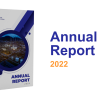

In recent years, Ghana’s public debt has been steadily rising, and as of November 2022, it amounted to GHS 575 billion, with GHS 382.7 billion being external debt and GH¢193.1 billion domestic debt. The COVID-19 pandemic-induced spending has contributed to widening the gap between revenues and expenditure, about 79% in 2020. The government secured approximately $1.5 billion from various development partners, including the IMF, World Bank and the African Development Bank (AfDB), to fund pandemic-related expenses in 2020, further increasing the country’s debt burden.
Despite requesting IMF assistance for the 17th time to achieve fiscal consolidation and debt sustainability, an analysis of Ghana’s governance structure suggests that the measures taken will only provide short to medium-term fiscal consolidation and balance of payments. Even after concluding the 16th IMF program in 2019, the Fund expressed concerns about Ghana’s fiscal vulnerabilities, and the country remained on this path. The government has identified revenue-generating measures through additional taxes, but these have not significantly contributed to the worsening debt distress and economic challenges.
The leading causes of Ghana’s public debt have been identified in this paper as stemming from inefficiencies in governance, which have been revealed in weak procurement practices, poor contingency planning and excessive spending over revenues, inadequate state institutions, and insufficient loan monitoring mechanisms. These must be addressed through long-term solutions to avoid a recurring cycle of seeking IMF support.
The discussion highlights that resolving Ghana’s debt requires more than just IMF programs. The governance structure needs significant changes to ensure accountability, efficiency, and effective policy implementation. Therefore, this report proposes the following recommendations for the government to consider:

